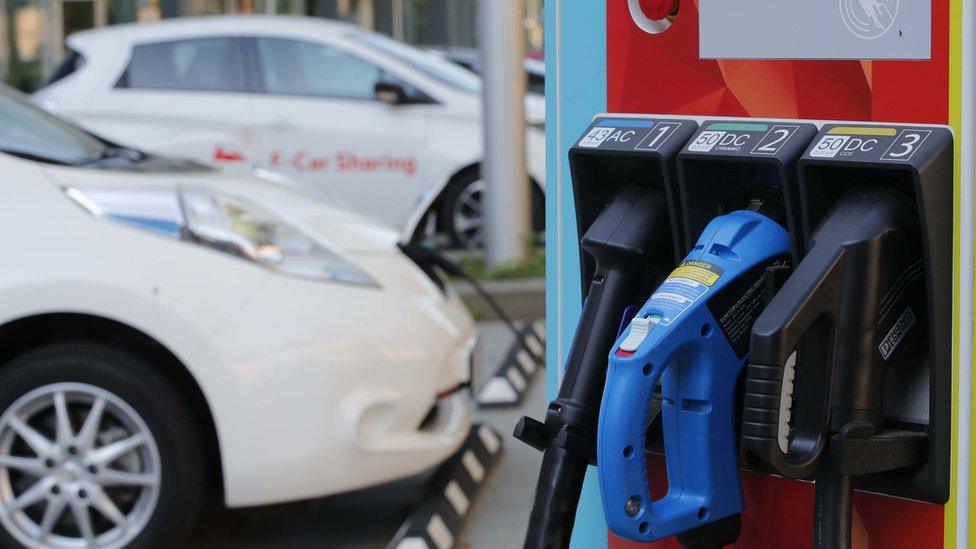Electric cars: 'Flexible' charging aims to cut costs
- Published
- comments

People who own electric cars could soon benefit from cheaper energy, as a result of so-called flexible charging.
Regulator Ofgem has announced plans, external to encourage owners to recharge cars at times when electricity is cheaper.
That could be in an off-peak period, or it could be at times when plenty of renewable energy is being generated.
So even though early evening is a peak time for energy use - making electricity expensive - hot or windy weather might bring the cost down.
Cheaper "time of day" tariffs are already available to 11 million homes in the UK that have smart meters installed.
As a result, some consumers are able to have free electricity at weekends, for example.
The system of flexible - or smart - charging would also be able to accommodate a 60% increase in the number of electric cars wanting to use the grid.
Saving money
Ofgem said that all consumers would benefit from the more efficient use of resources, as it could prevent new power stations having to be built.
"Our reforms will help more users charge their electric vehicles and save them money," said Jonathan Brearly, Ofgem's director of systems and networks.
"The proposals we have announced today will also harness the benefits of electric vehicles and other new technologies to help manage the energy system and keep costs down for all consumers."
The use of electric vehicles as batteries could help lower the cost of electricity for everyone, by feeding energy back into the grid when it is most needed.
Car owners could be paid for the electricity they have stored, in periods when demand is high.
To benefit from the new tariffs, electric car owners would need to have a smart meter, as well as a smart charger for their vehicle.
Ofgem will now consult on the plans with interested parties.